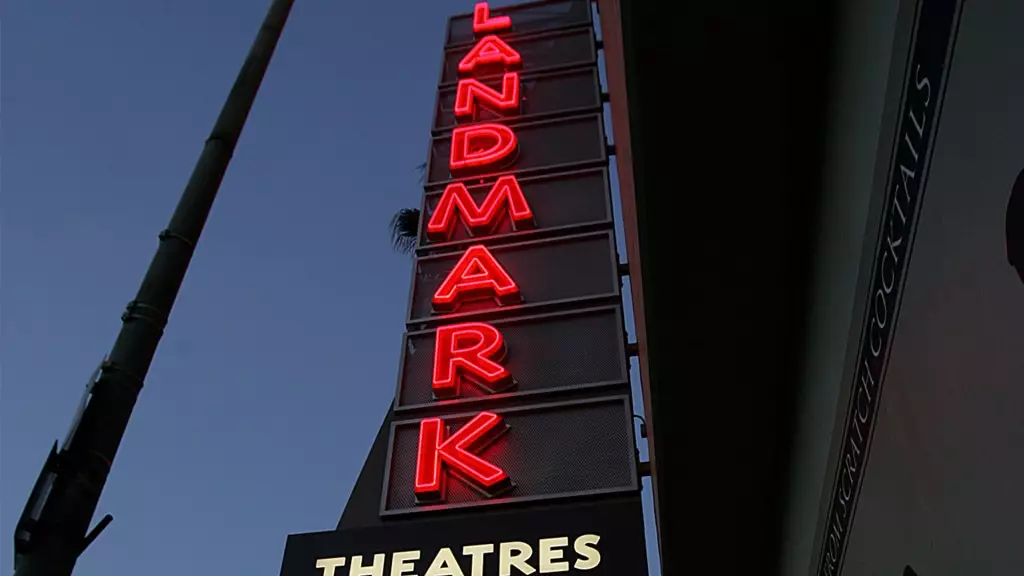The recent foreclosure auction surrounding properties owned by real estate mogul Charles Cohen has drawn attention to the precarious state of arthouse cinemas in the United States and beyond. The auction, which took place on a notable Friday, saw Creditor Fortress becoming the sole bidder, offering $5 million for the esteemed U.K. arthouse theater chain, Curzon. In stark contrast, Landmark Theatres, another part of Cohen’s portfolio, failed to attract any bids and is expected to remain under Cohen’s control, with business presumably continuing as usual. This situation not only raises questions about the viability of independent cinema but also highlights the financial struggles that have plagued the sector in recent years.
The absence of bids for Landmark Theatres is particularly telling. While Cohen’s team asserts that the chain remains secure, what does it mean if no other bidders were willing to step forward? In an industry already facing severe challenges, the lack of interest in acquiring Landmark suggests that investors are wary of its future prospects. Critics of Cohen’s management since his acquisition of Landmark in late 2018 underscore concerns over inadequate investment, a shift towards broader releases, and significant theater closures—such as the shuttering of Landmark LA in 2022. The community’s dissatisfaction with the operational direction raises pressing concerns about the chain’s artistic integrity and relevance in a market increasingly dominated by major studios.
The aftermath of the Covid-19 pandemic has exacerbated pre-existing vulnerabilities within the cinema landscape. Venues across the country saw attendance plummet during the pandemic, which was a significant blow to independent theaters and arthouse chains like Landmark. Thus, while the pandemic served as a catalyst for financial distress, the operational decisions taken by management have also deepened the crisis, leading to losses that reach into the millions. The film distribution sector’s evolution calls for a balanced approach—one that honors artistic expression while situating itself within a realistic operational framework.
With Fortress’s indication to take control of Curzon, there is both excitement and apprehension regarding the future of this well-regarded distributor and exhibitor in the U.K. The substantial bid of $76 million for the Design Center of the Americas and additional purchases like the Le Meridien hotel signify Fortress’s robust financial strategy but also highlight the underlying risk of over-reliance on a singular business model. The question arises: can Fortress successfully manage multiple properties, all while navigating the turbulent waters of the film industry?
Fortress’s claim for auctioning Cohen’s properties is not merely about asset recovery, but rather a complex legal battle that underscores the intricate relationship between real estate and the entertainment industry. Disclosures from Cohen’s recent deposition indicate substantial losses for both Landmark and Curzon, with Landmark allegedly reporting a staggering net loss of over $14 million. Furthermore, Fortress now holds a binding $187 million personal guarantee from Cohen, and has accused him of maneuvering assets to evade financial obligations.
The current situation underscores systemic issues plaguing independent film distribution. The apparent disillusionment within the independent community points to broader market challenges, where the balance between quality cinema and profitability remains elusive. As credit bids climbed to a total of $148.7 million during the auction, the question of sustainable business practice becomes increasingly pronounced. Without significant strategic shifts, the future of independent theaters may continue to dim, leading to a homogenization of cinema where artistic risks are overshadowed by safe investments.
The recent events surrounding the foreclosure auction not only spotlight the struggles of an individual mogul but also serve as a clarion call for the entire independent cinema ecosystem. It is essential for stakeholders—whether they be financial backers, theater owners, or filmmakers—to engage in rigorous reevaluation of strategies to ensure that arthouse theaters retain their cultural significance and financial viability. As the dust settles from this auction, the industry must come together to forge a path that respects both the artistic essence of independent cinema and the practical realities of its funding and operation.

